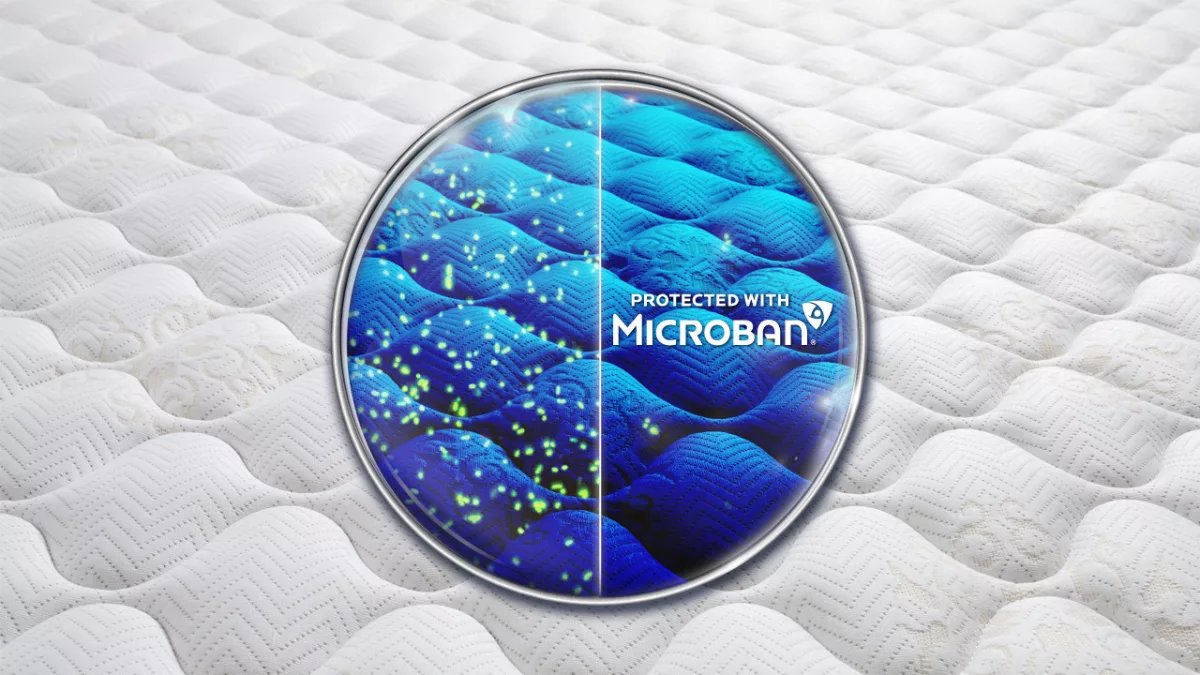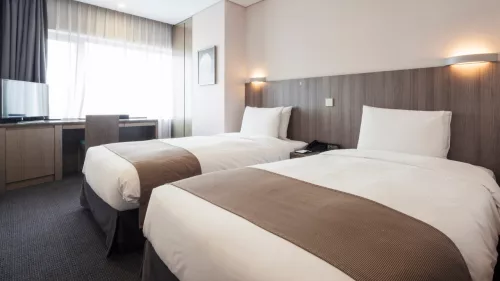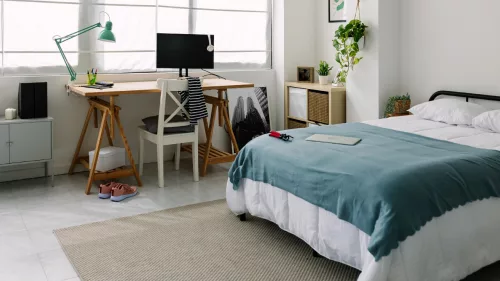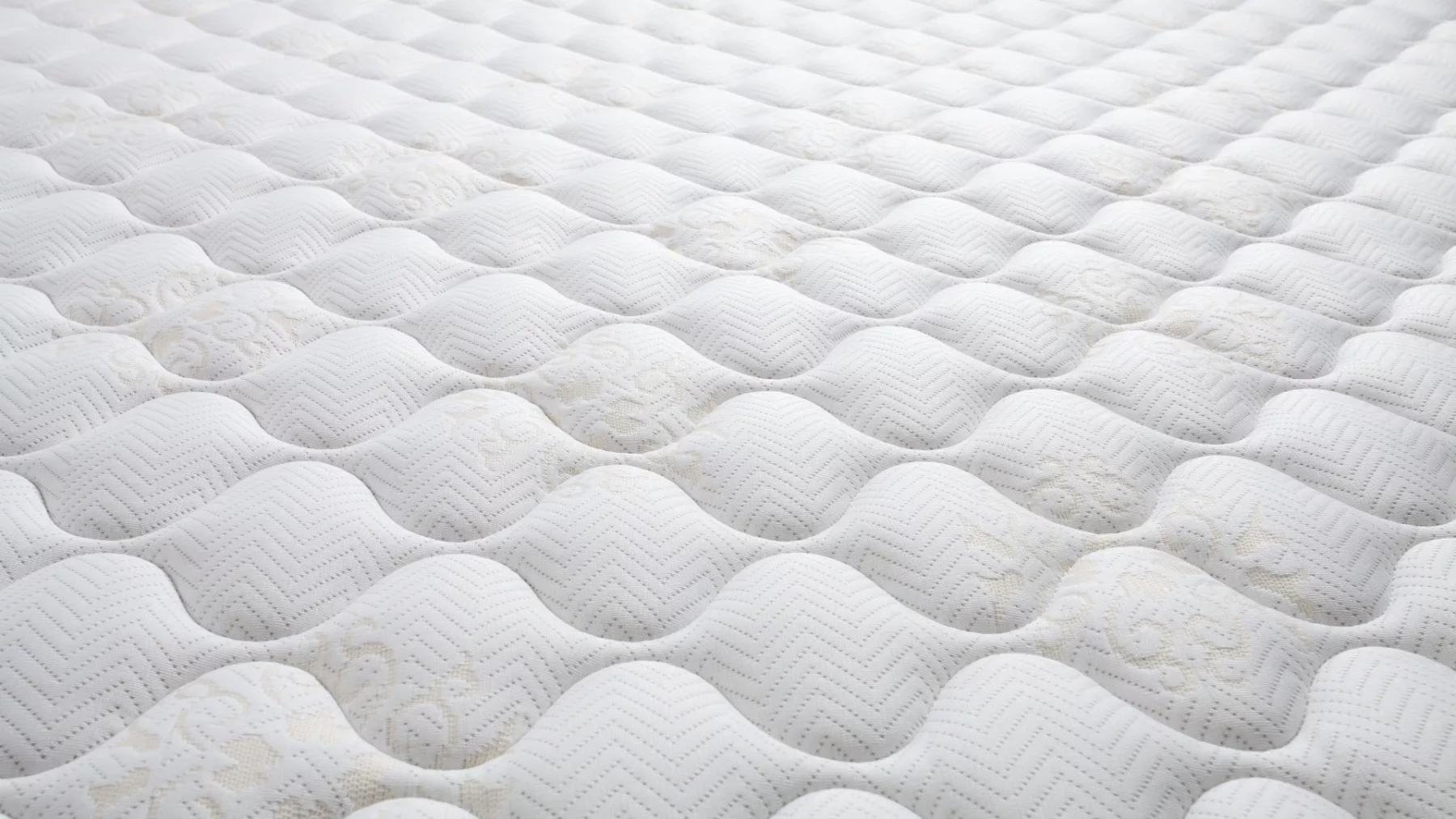Did you know that the average person spends approximately eight hours each night in bed? This creates an ideal environment for microbial growth, which impacts the overall cleanliness and lifespan of mattresses.
In a competitive market, mattress manufacturers aiming to differentiate themselves must offer innovative solutions promoting mattress freshness, cleanliness, and sustainability. By doing so, they can enhance customer loyalty and satisfaction, setting themselves apart in the industry.
In this blog, we explore the significance of clean mattresses and bedding across various sectors and highlight the latest solutions that manufacturers can offer to meet diverse needs.

Promoting sustainability through antimicrobial bedding solutions
Addressing landfill loading: Approximately 20 million mattresses and box springs are disposed of annually, equating to more than 50,000 discarded daily. Unfortunately, many of these mattresses end up in landfills, where their slow decomposition releases harmful chemicals and occupies space for decades.
Staining and odor caused by microbial growth often lead consumers to discard mattresses prematurely, further adding to landfill burdens and illegal dumping that harms communities. However, integrating antimicrobial bedding solutions can help alleviate this environmental impact by extending mattress lifespans.
Mitigating harsh cleaning chemicals: Traditional cleaning methods often rely on harsh cleaning chemicals that can harm the environment. Furthermore, frequent use of such chemicals can accelerate mattress deterioration, leading to premature disposal and environmental strain.
Bedding enhanced with built-in antimicrobial protection offers a sustainable alternative by reducing the need for harsh cleaning chemicals. By inhibiting microbial growth, these solutions keep treated materials cleaner, fresher, and more durable for longer, conserving water energy and promoting eco-friendly cleaning practices.
Antimicrobial bedding solutions for Hospitality

In the fast-paced world of hospitality, where hotels are open 365 days a year, cleanliness isn’t just a priority; it’s a make-or-break factor that directly impacts guest satisfaction and shapes the hotel’s reputation.
Studies show that 81% of travelers consistently read reviews before making their accommodation bookings, and an Expedia study revealed that in 72% of cases, travelers prioritize a guest’s review score over brand name or price. Moreover, guests are also willing to pay a premium of up to 35% for hotels boasting higher scores.
For mattress manufacturers catering to the hotel sector, durability is key. Their products must withstand the daily rigors of guest use while ensuring maximum comfort. With tight turnaround times between guest check-outs and check-ins, housekeeping must work swiftly to prepare rooms for incoming guests. In their haste, occasional oversights or lapses in attention to detail can occur, compromising the overall cleanliness.
This is where integrating antimicrobial technologies into bedding fabrics and mattresses proves invaluable. Not only does this enhance product durability, but it also complements cleaning routines by ensuring treated materials remain cleaner and fresher for longer between uses.
Antimicrobial bedding solutions for rented and shared accommodation

In rented and shared accommodations, such as Airbnb rentals, vacation homes, college dormitories, and apartment complexes, bed mattresses often undergo multiple rotations of use over the mattress lifespan. Different from private residences or hotels, where cleaning protocols may be more stringent, the frequency with which mattresses and bedding in shared accommodations are cleaned is often limited.
Unaddressed microbial presence in mattresses can lead to staining, a common issue that often leads to premature disposal and worsens waste management challenges. Furthermore, mattresses contain various materials, including foam, fabric, and metal springs, which may not decompose easily, further exacerbating environmental harm.
With antimicrobial technology, mattresses could have a longer lifespan, reducing the need for premature replacements and mitigating the environmental impact of mattress disposal.
Antimicrobial bedding in Healthcare facilities

In healthcare settings, cleanliness is paramount for patient recovery, especially for those with compromised immune systems.
Antimicrobial bedding offers a proactive approach to cleanliness, providing an additional layer of defense against microbial growth. Its enhanced durability is essential, as frequent laundering can damage traditional bedding, ensuring long-term cost savings and upholding cleanliness standards.
How long does antimicrobial protection work on bed mattresses?
Built into the mattress during manufacture, Microban antimicrobial protection provides an additional defense against product-damaging microbes that do not wash off or wear away. The technology works continuously 24/7/365 for the mattress’s usable lifetime.
This, along with regular cleaning protocols, ensures that antimicrobial mattresses can withstand bacteria, mold, and mildew and, in doing so, ease cleanliness anxieties in both domestic and commercial environments.
What are the key benefits of built-in antimicrobial technology for bed mattresses?
Keeps the surface hygienically cleaner and fresher
Helps reduce the risk of microbial cross-contamination
Improves product durability
Provides added peace of mind for consumers
Suitable for hygiene-sensitive environments such as care homes and hospitals
If you’re a mattress manufacturer and want to learn more about how antimicrobial protection can enhance your product lines, contact a team member today.


